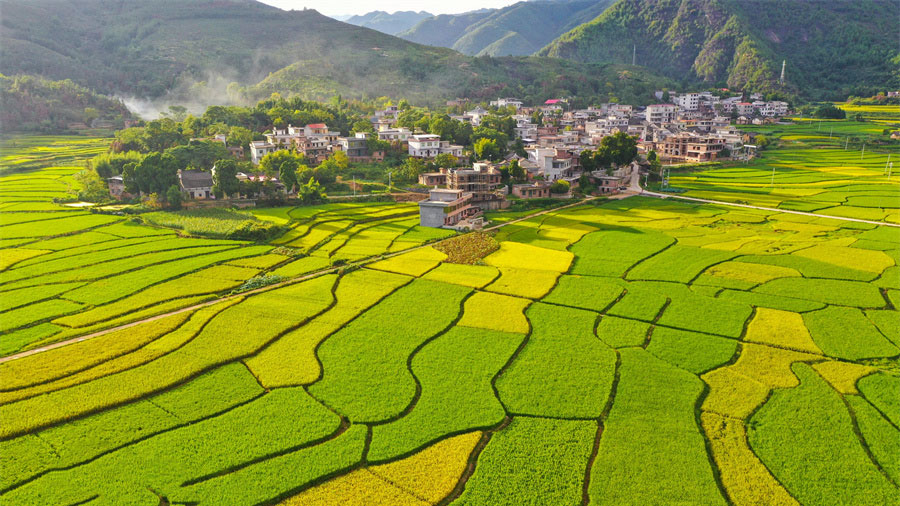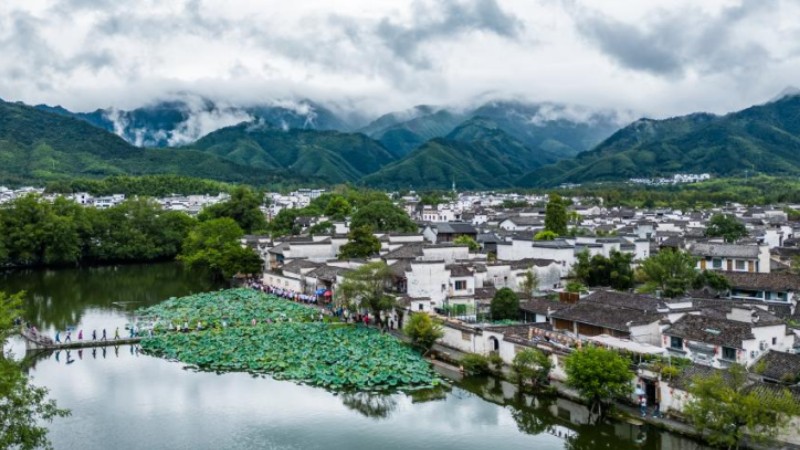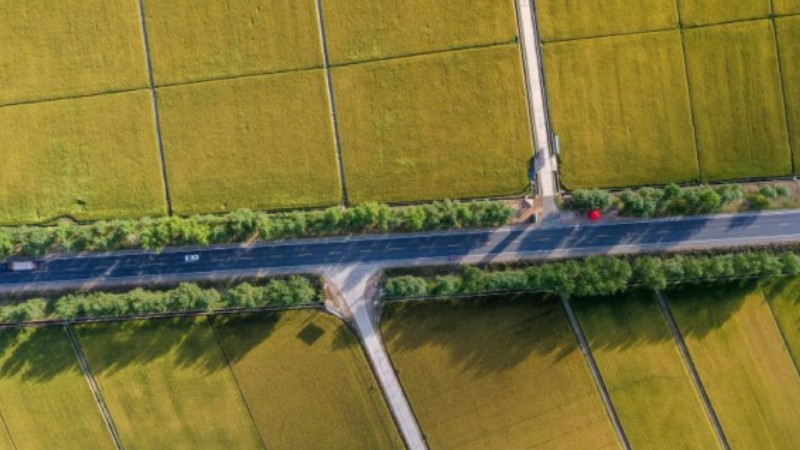UNESCO World Heritage status invigorates conservation of China's old tea forests
Captivated by the enchanting allure of Jingmai Mountain in Pu'er City, Yunnan Province, southwest China, it came as no surprise to Frenchman Jean-Charles Penot that the area's tea plantations gained UNESCO World Heritage status.
The Cultural Landscape of Old Tea Forests of Jingmai Mountain in Pu'er was inscribed on the UNESCO World Heritage List on Sunday at the extended 45th session of the UNESCO World Heritage Committee in Riyadh, Saudi Arabia, making it China's 57th World Heritage Site.
"The old tea plantations and the rainforest eco-system of Jingmai Mountain have been well preserved. I hope people here can live a better life while seeing the value of preserving its natural beauty," said Penot, who settled down in the Blang ethnic village of Wengji on the slopes of Jingmai Mountain five years ago, running a rainforest beverage parlor and a cafe in the idyllic setting.
Wengji is among nine traditional villages in the newly inscribed World Heritage Site, which encompasses five ancient tea forests with a total area of 18,000 mu (1,200 hectares). The landscape stands as an example of well-preserved and culturally rich domesticated ancient tea forests.
The ancestors of the Blang and Dai people were early settlers on the mountain. They discovered the value of tea and regarded it as an integral part of their lives, and their descendants carry on the traditional management of the ancient tea plantations, preserving the ecosystem by maintaining half original, half cultivated tea forests.
As the mountain has gained fame, local tea farmers have also benefitted from booming tourism. However, it has become clear that there are more visitors than space to accomodate them.
"We recommend that visitors stay overnight in nearby villages outside the core heritage area. I hope our neighboring areas can share Jingmai's business boom, while the protection and development of the heritage site can be sustainable," said Aikan from Wengwa, a village within the World Heritage Site.
The local authorities have planned to impose limit of tourist inflow into the mountain during peak travel time in order to better protect the key resource of old tea forests.
Li Qun, deputy minister of culture and tourism and head of the National Cultural Heritage Administration, emphasized the importance of prioritizing protection and planning ahead, after the site of Jingmai was inscribed on the UNESCO World Heritage List.
Li highlighted the need for the coordinated planning of protection and management measures for ancient tea forests, villages and traditional residential architecture to strike a balance between heritage preservation and development.
To promote the sustainable development of its heritage sites, China aims to increase participation by locals and other stakeholders. The involvement of local communities, particularly the younger generations, will be encouraged and guided to contribute to the dissemination of tea culture and the growth of the tea industry, Li said.
The cultural landscape of Jingmai has resulted in a unique protection system combining government management with grassroots governance, which ensures the protection of cultural and biological diversity and the sustainable use of natural resources, Li said.
Photos
Related Stories
- Shaanxi province takes multifaceted measures to promote cultural inheritance
- Award ceremony held to honor foreigners for contribution to cultural exchanges
- Diverse cultures, radiance of glory
- Feature: Nobel laureate encourages more Chinese to "go to Africa"
- 60 newly discovered relics on display in Nanjing
- Chinese artwork lights up summer night in Tel Aviv Port
Copyright © 2023 People's Daily Online. All Rights Reserved.









